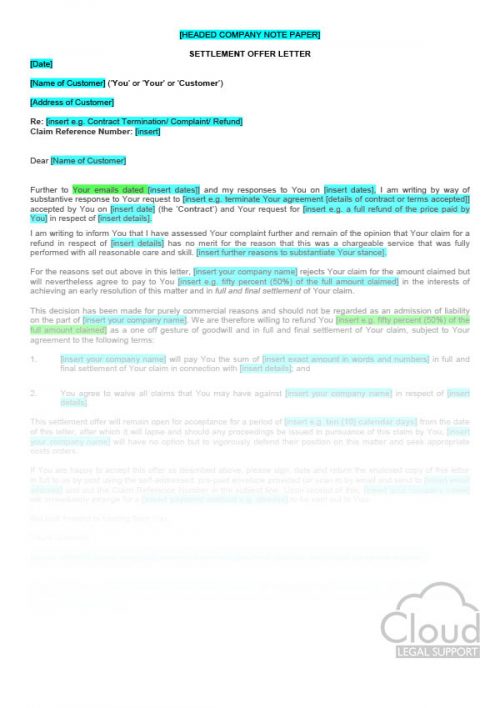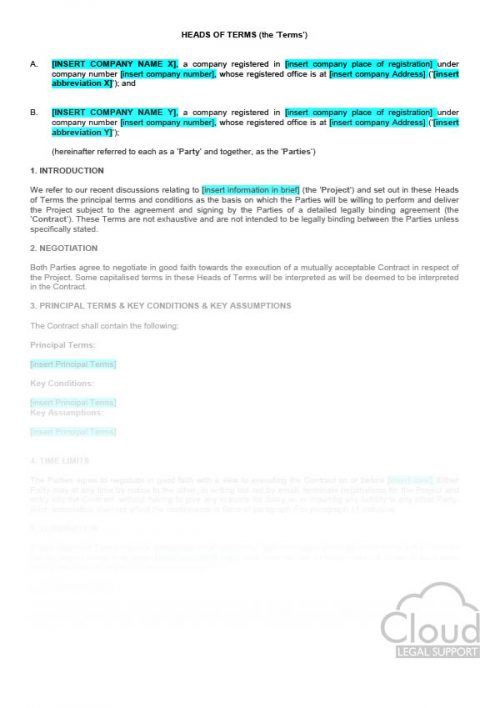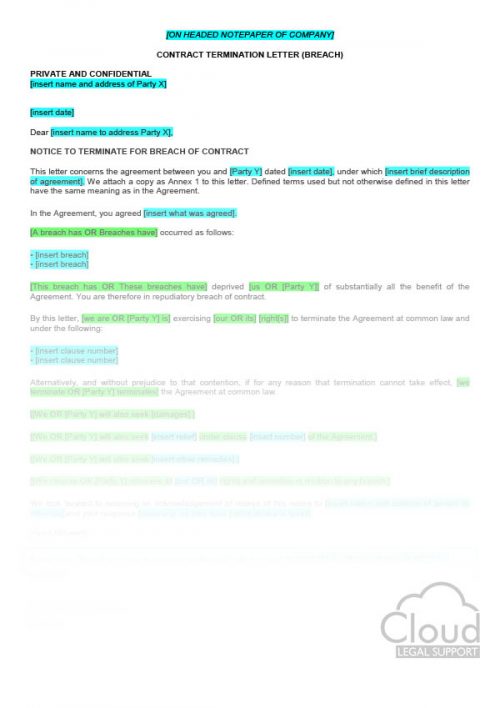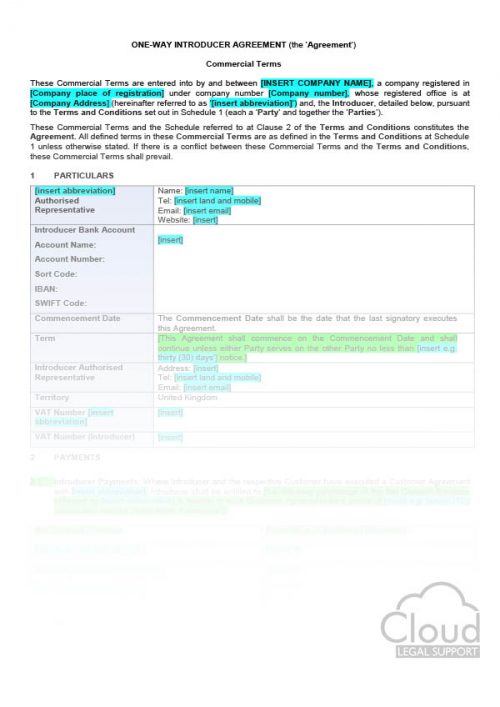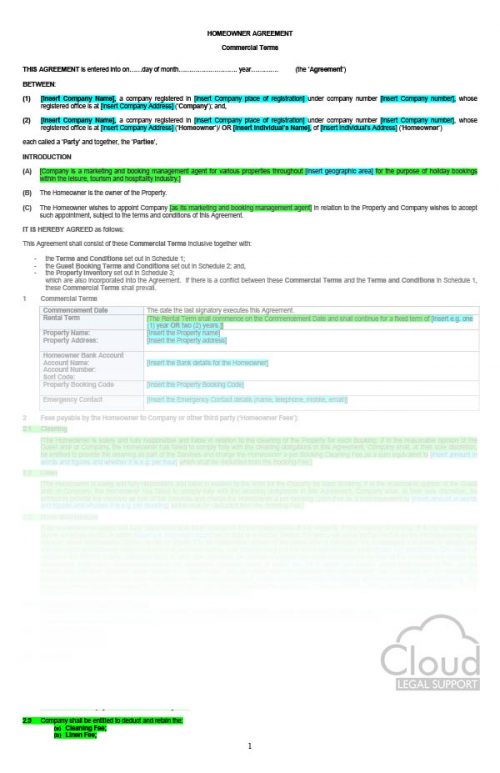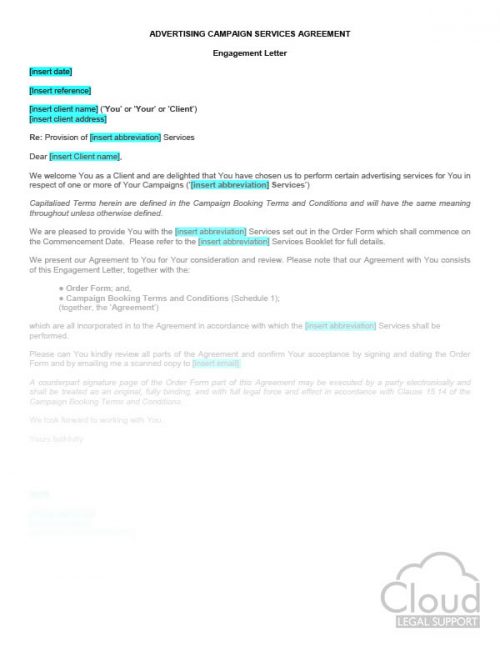- a privacy notice; or,
- a fair processing statement; or
- a privacy policy.
-
A Privacy Statement is a statement made to a Data Subject e.g. customer that describes how the business/ organisation ‘processes’ i.e. collects, uses, retains and discloses their Personal Data. A Privacy Statement is sometimes referred to as:
-
This letter should be sent to customers who have made a complaint about the services of a company. This letter should be sent when an offer is being made to the customer to settle the dispute. The customer does not have to accept this but if they do accept it, that should be the matter over. The letter stresses that the offer is not an acceptance of liability for the complaint on the part of the supplier/ service provider but is being made for purely commercial reasons.
-
This document should be used where two parties have begun negotiations but haven’t entered into any formal agreements. They are used to outline the terms of a commercial transaction where certain terms or aspects of the deal have been agreed in principle during initial discussions or negotiations. These Heads of Terms are not legally binding (unless expressly specified) and neither party is compelled to enter into an agreement on the terms in the Heads of Terms, or at all.
-
To be used to given formal written notice of termination of a contract where the other party has breached the terms of the contract.
-
To be used when a business is referring new customers to another business. This sort of arrangement is common where a business’ customers may benefit from the services offered by another business. The business may direct (or introduce/ refer) the customer to that business and claim a fee for doing so. This agreement sets out how the arrangement will work. Fees payable are contingent upon the Prospect contracting with the Company as a result of the Introduction made by the Introducer.
-
-
This agreement is used when a homeowner is engaging the services of a third party to market their property for them in respect of short-term holiday lets. It sets out the respective responsibilities of the homeowner and the third party. It includes the following terms:
- the Homeowner Commercial Terms and Terms and Conditions at Schedule 1;
- the Guest Booking Terms and Conditions set out in Schedule 2;
- the Property Inventory set out in Schedule 3; and
- the Data Processing Addendum set out in Schedule 4
-
To be used in the context of the sale and purchase of the entire issued share capital of a private company, where the buyer requires some (or all) of the target company's directors to resign on completion of the transaction. This is a common requirement in UK transactions, as the buyer will usually want to replace the current directors and/or company secretary with its own. A letter of resignation by a director of a company includes an acknowledgement that the resigning officer has no claims outstanding against the company and a waiver of any claims that may exist. Filing: Notice of the resignation must be given to the Registrar of Companies within 14 days (section 167 of the Companies Act 2006). The relevant form to use for this purpose is Form TM01.
-
-
This is drafted in favour of the Developer Company. For use when a Developer Company is engaged by the Client to provide software development services for the benefit of the Client. The contract is presumed therefore to have been put on the table by the Developer Company. If the Developer is an individual as opposed to a company, see Agile Software Development & Assignment Agreement (Developer Individual & Client) (B2B).
-
To be used when a business engages the services of an advertising company. This documents sets out the scope of the agreement, what services will be provided, how long will the campaign run for etc.
-
For use when you are providing a person or company (e.g. an IT contractor or web developer) with your information that is confidential and of a sensitive/ commercial nature. By signing this agreement that recipient person or company is agreeing that they will not use any such confidential information outside the scope of the agreement to their advantage either by competing directly with you or by approaching your clients in an attempt to obtain their business.

